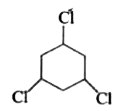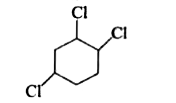Which of the following processes does not need any constant temperature for its continuation?
Boiling
Vaporisation
Evaporation
None of these
To determine which process does not require a constant temperature for its continuation, we need to analyze the different processes of heat transfer mentioned: boiling, vaporization, and evaporation.
1. Understanding Boiling:
- Boiling is a phase transition from liquid to gas that occurs at a specific temperature called the boiling point.
- At this temperature, the liquid absorbs heat and turns into vapor.
- Since boiling occurs at a constant temperature, it requires that temperature to remain constant for the process to continue.
Hint: Remember that boiling happens at a specific temperature known as the boiling point.
2. Understanding Vaporization:
- Vaporization is the process where a liquid turns into vapor.
- This can occur through boiling or evaporation.
- However, when vaporization occurs through boiling, it also requires a constant temperature, similar to boiling.
Hint: Vaporization includes boiling, which requires a constant temperature.
3. Understanding Evaporation:
- Evaporation is the process where liquid turns into vapor at any temperature below its boiling point.
- Unlike boiling, evaporation does not require the liquid to reach a specific temperature.
- It can occur at various temperatures as long as the liquid is present, and thus, does not need a constant temperature for its continuation.
Hint: Evaporation can happen at any temperature below the boiling point.
4. Conclusion:
- Among the processes discussed, boiling and vaporization require a constant temperature to continue, while evaporation does not.
- Therefore, the correct answer to the question is evaporation.
Final Answer:
Evaporation is the process that does not need any constant temperature for its continuation.
---
- Boiling is a phase transition from liquid to gas that occurs at a specific temperature called the boiling point.
- At this temperature, the liquid absorbs heat and turns into vapor.
- Since boiling occurs at a constant temperature, it requires that temperature to remain constant for the process to continue.
- Vaporization is the process where a liquid turns into vapor.
- This can occur through boiling or evaporation.
- However, when vaporization occurs through boiling, it also requires a constant temperature, similar to boiling.
- Evaporation is the process where liquid turns into vapor at any temperature below its boiling point.
- Unlike boiling, evaporation does not require the liquid to reach a specific temperature.
- It can occur at various temperatures as long as the liquid is present, and thus, does not need a constant temperature for its continuation.
- Among the processes discussed, boiling and vaporization require a constant temperature to continue, while evaporation does not.
- Therefore, the correct answer to the question is evaporation.
Evaporation is the process that does not need any constant temperature for its continuation.
Topper's Solved these Questions
- HEAT TRANSFER BOOK - ICSECHAPTER - HEAT TRANSFER EXERCISE - THEME ASSIGNMENT
11 Videos
- HEAT TRANSFER BOOK - ICSECHAPTER - HEAT TRANSFER EXERCISE - Questions (Name the following)
5 Videos
- HEAT TRANSFER BOOK - ICSECHAPTER - HEAT TRANSFER EXERCISE - THEME ASSIGNMENT (true or false)
3 Videos
- FORCE AND PRESSURE BOOK - ICSECHAPTER - FORCE AND PRESSURE EXERCISE - Picture Study
4 Videos
- LIGHT ENERGYBOOK - ICSECHAPTER - LIGHT ENERGYEXERCISE - THEME ASSIGNMENT D. Statements given below are incorrect. Write the correct statements.
7 Videos
Similar Questions
Knowledge Check
Which of the following molecules does not show any resonating structures?
ANH3BCO2−3CO3DSO3Which of the following compounds does not have any geometrical isomer?
A B
B C
C D
D
Which of the following halides does not hydrolyse at room temperature?
View SolutionWhich of the following processes does not occur at the interface of phases?
View SolutionWhich of the following does not contain any coordinate bond ?
View SolutionWhich of the following secretions does not contain any enzyme -
View SolutionWhich of the following does not make a nest of its own?
View SolutionWhich one of the following plot will be a hyperbola at constant temperature ?
View Solution
